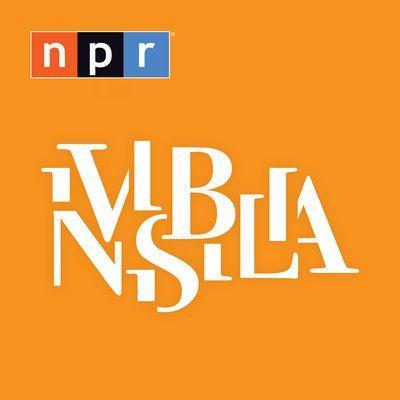Get those auditory neurons firing! This blogpost is an update to my post from 3 years ago on neuroscience podcasts. I'm a complete podcast addict and really believe that podcasts are the way of the future--they're a great way to learn on the go, while you do chores, or exercise. Also, you can control the speed of what you're listening to and pause to take notes. Neuroscience podcasts can be a great way to hear how scientists talk and think, to get exposed to a variety of topics, and to keep up-to-date with this quickly moving field.
Top 8 Neuroscience / Behavior Podcasts:
In no particular order. They’re really apples and oranges (and in one case an apple-orange). Why top 8 and not top 10?Because these are the podcasts I listen to personally and can recommend. Read the descriptions and decide what’s right for you.

1. Naked Neuroscience Podcast – A podcast recorded out of Cambridge University, this podcast has been around since 2001, but it’s new to me! This podcast includes news from European conferences and interviews with scientists from around the world. It has high production values, good stories, rigorous science, but as you can see from the picture a sense of humor as well. Monthly episodes, ~30 mins.

2. NPR’s Invisibilia – Think Radiolab focused on “the invisible forces that control human behavior – ideas, beliefs, assumptions and emotions.” Each episode, hosted by rising stars Lulu Miller and Alix Spiegel, interviews scientists and crafts small narratives around themes. For example, this season featured episodes on interactions with technology, blindness, and fear. The first season is 6 episodes, ~1 hr, more to come (and hopefully soon!)

3. High Proof Podcast – Another podcast with a sense of humor, their tagline reads: “We demand high proof for our science and our spirits.” I really enjoy this podcast. Ryan and Joel think they pick interesting topics and I especially like the philosophical slant, though I wish they spent more time explain the background of the philosophy they cover. Maybe I’m doing something wrong, but I can’t find their earliest episodes. I wish I knew a little bit more about their backgrounds and sometimes I wish they planned and researched their topics a little better, but I also don’t want them to sacrifice the conversational tone. Regardless, highly recommend it. ~1/wk 12 episodes total as I write this

3. Brain Science Podcast – “The show for everyone who has a brain.” Hosted by an ER doctor, Ginger Campbell, does a great job of getting big name neuroscientists to talk in depth on a topic while keeping things accessible. I think Dr. Cambell is doing a huge service to the world by making this podcast. Its great for getting introduced to perspectives of psychology out neuroscience outside of your own field. I also love that Dr. Campbell repeats and clarifies important points in the middle and end of episodes and always asks the guests to give advice to students interest in neuroscience. The website also features annotated transcripts of the episodes. Monthly episodes ~1 hr.

4. Neuropod – Nature’s official neuroscience podcast hosted by neuroscience journalist Kerri Smith (though I believe the host is changing soon). Each episode is around a half hour and usually features 3-4 pieces interviewing authors of recent papers and reviews. (The website also has links to the papers if they peak your interest.) The podcast has high production value on par with public radio. Monthly episodes ~30 min.

5. UTSA’s Neuroscientist’s Talk Shop – As the name implies, NTS is hardcore neuroscience. Each episode has an invited guest who takes part in a discussion and answers questions posed by other neuroscientists. Generally, the topics covered focus on computational neuroscience and electrophysiology. Often speakers assume listeners are well versed in the field, but I think even if you aren’t, you can still get a lot out of it by hearing the way scientists think and talk informally about research and speculate on the gray areas of neuroscience (though like any good scientists, they make it more than clear when they are speculating). Frequency varies 1-3 weeks during the school year ~45 min.

6. Freakonomics – “The hidden side of everything.” Hosted by the authors of the best-selling book of the same name, Freakanomics Radio podcast has released over 200 episodes since 2010. The show uses a narrative style and interviews to explain studies of behavioral economics–a field that uses economic statistical techniques and theory to determine what factors like incentives drive the behavior of people and systems. This podcast is incredibly interesting and accessible. Though it doesn’t touch strictly on neuroscience, I really would recommend it to any human being, but especially so anyone interested in behavior and decision-making. 1/wk 30-60 mins

7. The Laughter Research Podcast – This podcast is really cool in that its guests include not just professors, but comedians and entrepreneurs. I think this broader perspective is in part due to the fact that This Laughter Research Podcast is hosted by Glen Duggan, a non-traditional psychology PhD candidate in Trinity College, Dublin, with a lot of real world experience. I briefly chatted to on twitter and seems like a genuinely great guy. I’m of the opinion that positive emotions like happiness and behaviors like laughter are far understudied compared to negative emotions, so I think the work he’s doing to promote this work is very important. ~ 2 episodes / Month

8. All about Autism Podcast – This podcast is a little more niche, but it’s a fascinating and easy listen, and I would recommend it to anyone interested in autism, psychiatry, especially those who are curious about a patient’s or parents perspective. The All about Autism Podcast is hosted by Heather and Dave Eaton. (Dave is the co-owner and co-founder of Eaton Alliance Inc., which supports individuals with disabilities, specializing in autism.) It’s really interesting to hear people’s perspectives on autism from a less academic, but extremely well informed perspective (in fact far more informed than most academics as to the everyday lives of patients with autism). I think this podcast is a powerful force for good in the world right now, especially as it educates and rebuffs the misconception that vaccines cause autism. (To repeat the obvious, there is no scientific evidence showing vaccines cause autism and many have looked. The one original study that did show this has been shown to be a fraud propagated by a scientist with a conflict of interest.) Used to be once a week, but now closer to once a month.
——–
I’m sure I’m missing some podcasts from this list, and, as I mentioned above, I’m a podcast addict. So I’d love to hear what you’re listening to and what you’d recommend, even podcasts that aren’t directly related to neuroscience and behavior. Also, if you liked this post and want to see more like it please share it and if you want updates on what I’m thinking and listening to please follow me on twitter, or like the Neuroamer page on facebook.
Thanks!
Ben Kuebrich

